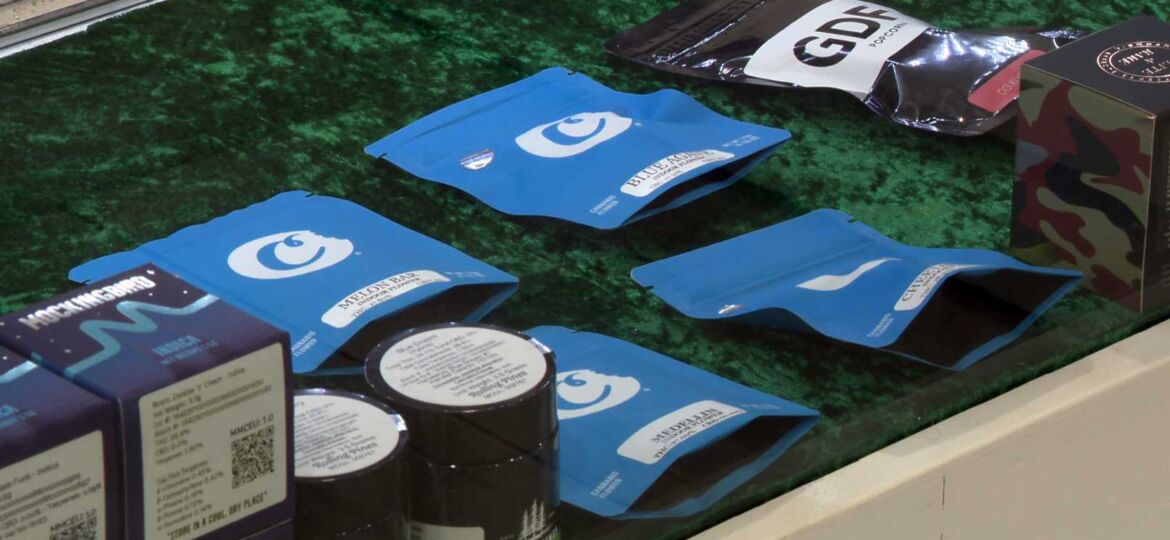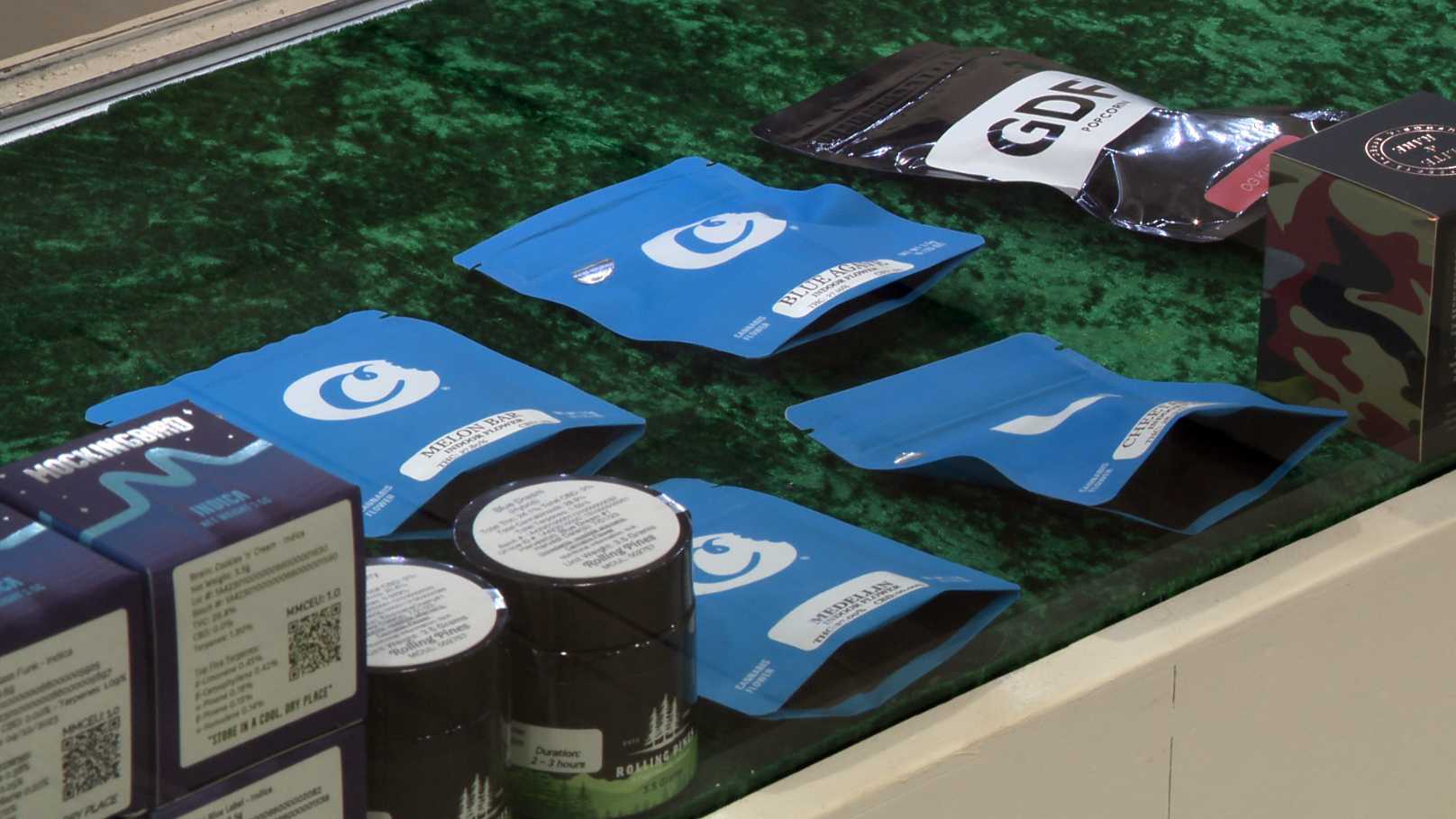

Marijuana for medicine is generating a lot of green for the state of Mississippi.In its first year of operation, the Medical Cannabis Program has brought in millions of dollars in revenue and sales taxes. More than 32,000 patients are signed up, including Mike Watkins.“I was one of the first patients to purchase within the first day or two of medical cannabis becoming legal,” Watkins said.Watkins believes medical marijuana has given him a new lease on life.“Mainly because it allows me to continue to function in my life without being overly medicated,” Watkins said.He said the Veterans Administration put him on 400 to 600 prescription drugs every month to treat PTSD and a traumatic brain injury from serving a year in Iraq as a combat medic after 9/11.“Pharmaceuticals were never just quite the answer for me. It always led to something else. They always talk about cannabis being a gateway drug. Well, for me, it was a gateway from pharmaceutical drugs. I no longer need those,” Watkins said. “I’m a better husband. I’m a better father. I’m a better participant in my own success.”Watkins said he no longer takes any prescription drugs.“That’s one of the most common things that a patient will tell me when sitting in that chair. ‘I want to get off some of these drugs. I want to stop going to the pharmacy to pick up all of these bottles,” Watkins said.Dr. Fred Kency is a board-certified emergency medical physician. He said he’s certified 1,000 patients to qualify for medical cannabis.“I work in multiple emergency rooms across the state — here in Jackson, Meridian, Brookhaven,” he said.Kency said many have seen a dramatic change in their quality of life. They no longer have to take addictive, potentially deadly opioids to treat cancer, HIV or PTSD.“We can truly see the physical impact, the positive impact that it’s making in our patients,” Kency said.What are the qualifying medical conditions for the MMCP?Petition for addition of qualifying conditionsState Health Officer Dr. Dan Edney said in a statement that the “top priority continues to be the patients who are finding relief from debilitating conditions.Medical cannabis in Mississippi has produced more than $44 million in retail sales in the past year, $8 million in fees for applications and licenses, plus more than $2 million in taxes from cannabis sales.There are close to 400 establishments, including dispensaries across the metro, have licenses to operate and 3,000 people with permits can now work in the medical marijuana industry. Some believe state leaders should expand the program. “Hopefully, the legislators will actually add anxiety and insomnia to the list of debilitating medical conditions because we know that if people don’t get enough sleep, then they’re not able to function as they need to,” said Angie Calhoun, leader of the Mississippi Cannabis Patients Alliance.Calhoun believes lawmakers should ease current rules so patients can get their prescriptions monthly instead of weekly and make it easier to pick them up.“In the future, I do hope to see that we can at least have a drive-thru or some kind of legitimate delivery control system,” Calhoun said.The Patients Alliance wants the state to invest $5 million for research in education to better understand the benefits of medical cannabis.
Marijuana for medicine is generating a lot of green for the state of Mississippi.
In its first year of operation, the Medical Cannabis Program has brought in millions of dollars in revenue and sales taxes. More than 32,000 patients are signed up, including Mike Watkins.
Advertisement
“I was one of the first patients to purchase within the first day or two of medical cannabis becoming legal,” Watkins said.
Watkins believes medical marijuana has given him a new lease on life.
“Mainly because it allows me to continue to function in my life without being overly medicated,” Watkins said.
He said the Veterans Administration put him on 400 to 600 prescription drugs every month to treat PTSD and a traumatic brain injury from serving a year in Iraq as a combat medic after 9/11.
“Pharmaceuticals were never just quite the answer for me. It always led to something else. They always talk about cannabis being a gateway drug. Well, for me, it was a gateway from pharmaceutical drugs. I no longer need those,” Watkins said. “I’m a better husband. I’m a better father. I’m a better participant in my own success.”
Watkins said he no longer takes any prescription drugs.
“That’s one of the most common things that a patient will tell me when sitting in that chair. ‘I want to get off some of these drugs. I want to stop going to the pharmacy to pick up all of these bottles,” Watkins said.
Dr. Fred Kency is a board-certified emergency medical physician. He said he’s certified 1,000 patients to qualify for medical cannabis.
“I work in multiple emergency rooms across the state — here in Jackson, Meridian, Brookhaven,” he said.
Kency said many have seen a dramatic change in their quality of life. They no longer have to take addictive, potentially deadly opioids to treat cancer, HIV or PTSD.
“We can truly see the physical impact, the positive impact that it’s making in our patients,” Kency said.
State Health Officer Dr. Dan Edney said in a statement that the “top priority continues to be the patients who are finding relief from debilitating conditions.
Medical cannabis in Mississippi has produced more than $44 million in retail sales in the past year, $8 million in fees for applications and licenses, plus more than $2 million in taxes from cannabis sales.
There are close to 400 establishments, including dispensaries across the metro, have licenses to operate and 3,000 people with permits can now work in the medical marijuana industry. Some believe state leaders should expand the program.
“Hopefully, the legislators will actually add anxiety and insomnia to the list of debilitating medical conditions because we know that if people don’t get enough sleep, then they’re not able to function as they need to,” said Angie Calhoun, leader of the Mississippi Cannabis Patients Alliance.
Calhoun believes lawmakers should ease current rules so patients can get their prescriptions monthly instead of weekly and make it easier to pick them up.
“In the future, I do hope to see that we can at least have a drive-thru or some kind of legitimate delivery control system,” Calhoun said.
The Patients Alliance wants the state to invest $5 million for research in education to better understand the benefits of medical cannabis.

